Covid-19 and Flu Vaccine on Same Day? Yes
Healthy Connections Community Health Network is making it easier to protect yourself this fall and winter by offering Covid-19 vaccines (1st dose, 2nd dose, and Booster) and seasonal flu vaccines at its clinic locations.
It is safe to receive both the Covid-19 vaccine and flu vaccine in the same visit, allowing patients to accomplish both in just one office visit. Call 888-710-8220 to schedule an appointment. Find a clinic near you by visiting www.healthy-connections.org/locations.
The Covid-19 vaccine is recommended for everyone 12 years and older for the prevention of Covid-19 in the United States. The Moderna vaccine, which is available at Healthy Connections, is effective against SARS-CoV-2 infections, including asymptomatic and symptomatic infection, severe disease, and death. The Moderna vaccine is available to patients who are at least 18 years old.
The CDC reports that available evidence suggests that these vaccines offer protection against known variants, including the Delta variant, particu8larly against hospitalization and death.
Moderna “booster” shots are currently recommended to people who are moderately or severely immunocompromised. Eventually, these booster shots will be available to the rest of the population.
Flu vaccines are also now available at Healthy Connections. The flu vaccine for 2021-2022 will be a quadrivalent (four-component), designed to protect against four different flu viruses. It can be given at the same time as the Covid-19 vaccine.
Call 888-710-8220 for a vaccine appointment today.
FREQUENTLY ASKED QUESTIONS (FAQ)
How bad will the 2021-2022 flu season be?
There are a lot of variables that could impact the severity of the flu season. Last year, with masking, social distancing, and other measures being taken because of the Covid-19 pandemic, flu numbers were down from previous years. But with fewer masks being worn, less social distancing, and more return to group gatherings, the 2021-2022 flu season could be very severe.
When is the best time to get my flu vaccine?
September and October are generally considered good times to be vaccinated. Ideally, everyone should be vaccinated by the end of October.
When is the best time to get my Covid-19 vaccine?
Now. The Moderna Covid-19 vaccine is administered in two doses, four weeks apart.
Why should I get my Covid-19 vaccine?
Rigorous studies have found the Moderna Covid-19 vaccine to be safe and effective. Getting the vaccine will keep you healthy, and it represents the best option for returning life to normal.
Can I get the flu vaccine and Covid-19 vaccine on the same day?
Yes.
Where can I get my vaccine?
Healthy Connections Community Health Network clinics are offering the Moderna Covid-19 vaccine and the 2021-2022 flu vaccine. Call 888-710-8220 for appointments or visit www.healthy-connections.org/locations to find a clinic near you.
Is there free transportation?
Are Covid-19 booster shots being given?
If we need a booster dose, does that mean the vaccines aren’t working?
No. Covid-19 vaccines are working very well to prevent severe illness, hospitalization, and death, even against the widely circulating Delta variant. However, with the Delta variant, public health experts are starting to see reduced protection against mild and moderate disease. For that reason, the U.S. Department of Health and Human Services (HHS) is planning for a booster shot so vaccinated people maintain protection over the coming months.
What’s the difference between a booster dose and an additional dose?
Sometimes people who are moderate to severely immunocompromised do not build enough (or any) protection when they first get a vaccination. When this happens, getting another dose of the vaccine can sometimes help them build more protection against the disease. This appears to be the case for some immunocompromised people and COVID-19 vaccines. CDC recommends moderately to severely immunocompromised people consider receiving an additional (third) dose of an mRNA COVID-19 vaccine (Pfizer-BioNTech or Moderna) at least 28 days after the completion of the initial 2-dose mRNA COVID-19 vaccine series. In contrast, a “booster dose” refers to another dose of a vaccine that is given to someone who built enough protection after vaccination, but then that protection decreased over time (this is called waning immunity). HHS has developed a plan to begin offering COVID-19 booster shots to people this fall. Implementation of the plan is subject to FDA’s authorization and ACIP’s recommendation.





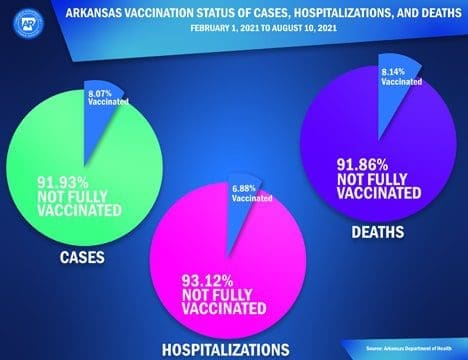 The number of Covid-19 cases in Arkansas is going up very fast and the Delta variant is putting younger and healthier people in the hospital. This is a dangerous virus and it can cause serious health problems and even death.
The number of Covid-19 cases in Arkansas is going up very fast and the Delta variant is putting younger and healthier people in the hospital. This is a dangerous virus and it can cause serious health problems and even death.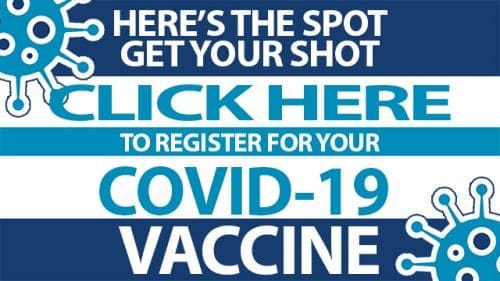
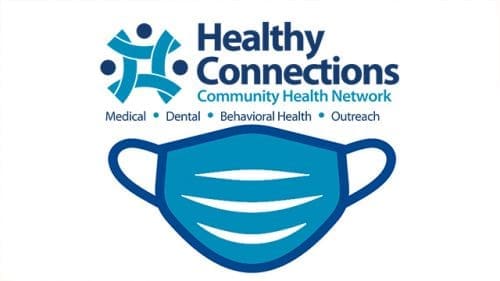
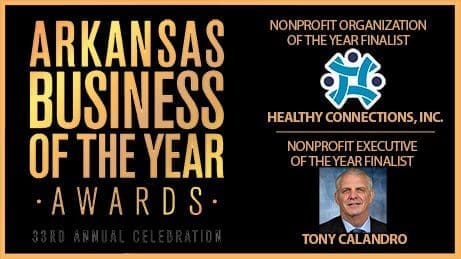 Healthy Connections, Inc., and CEO Tony Calandro have been named finalists in the Arkansas Business 33rd Annual Business of the Year awards.
Healthy Connections, Inc., and CEO Tony Calandro have been named finalists in the Arkansas Business 33rd Annual Business of the Year awards.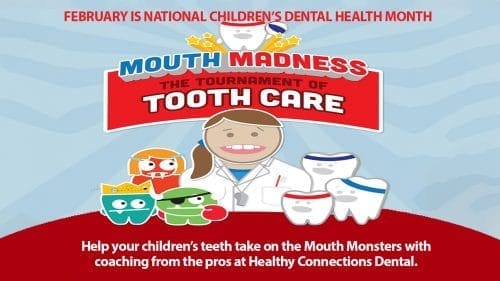 February is recognized as National Children’s Dental Health Month. This observance brings together dental and healthcare professionals to promote the benefits of good oral health to children, their caregivers, teaches, and many others.
February is recognized as National Children’s Dental Health Month. This observance brings together dental and healthcare professionals to promote the benefits of good oral health to children, their caregivers, teaches, and many others.